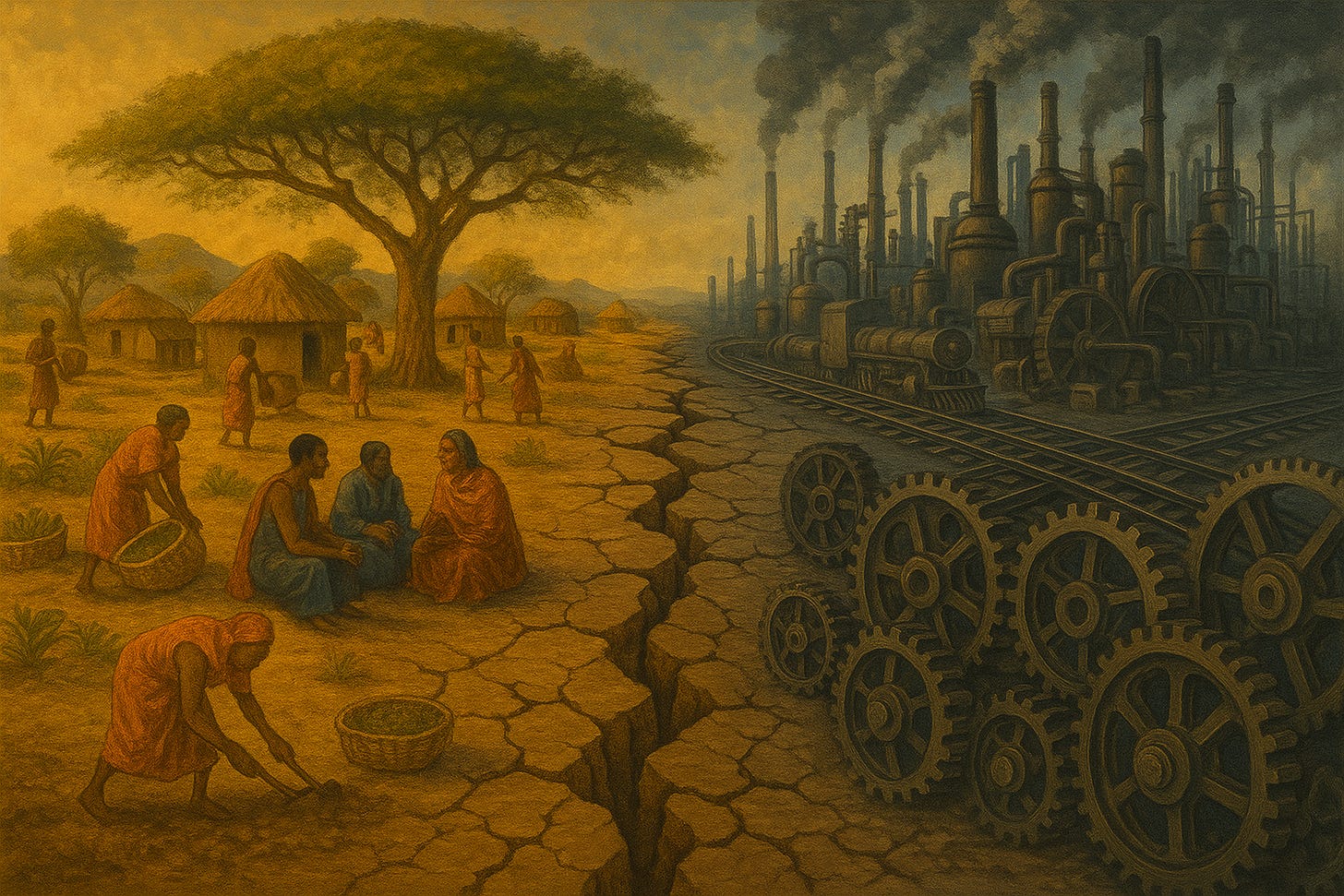Was Africa Ever Under Pressure to Industrialise?
Rethinking innovation from the inside out
When we talk about Africa and development, the conversation often starts with what’s missing: roads, factories, machines, systems. The underlying question seems to be, why didn’t Africa industrialise like Europe or Asia did? And the implied answer is usually that something went wrong — a failure to modernise, or a delay in catching up.
But what if the question itself is flawed?
What if Africa was never under the same kind of pressure to industrialise — not because of a lack of ingenuity, but because of a different kind of context?
Climate, Culture, and Constraint
Europe’s industrial revolution didn’t emerge in a vacuum. It was shaped by harsh winters, dense populations, limited arable land, and a deep need to create systems — of heating, transport, storage — that could overcome those constraints.
By contrast, much of precolonial Africa had a different relationship with its environment. In many regions, food was seasonal but abundant. Building materials were local and renewable. Social systems were decentralised, flexible, and deeply diplomatic. Innovation existed — but not necessarily in machines. It was in negotiation, land use, architecture, ecological harmony.
The Mistake of Copying Pressures
Colonialism imposed a one-size-fits-all model of “development,” designed to extract, not sustain. It brought with it the assumption that only industrial growth could be called progress. But Africa had its own technologies — many of them intellectual, environmental, or social in nature. These didn’t show up on GDP charts, but they held societies together for centuries.
When Africa took strategic advice from those whose histories were shaped by cold winters, wars over land, and high-survival thresholds, it adopted solutions for problems it didn’t always have.
Rethinking Innovation
To innovate is to solve problems. Africa solved its problems — not through mass production, but through stewardship, diplomacy, and adaptive design. The village chief, the rotating field, the sacred forest — these were systems of stability, knowledge, and balance.
What we need now is not to “catch up” to someone else’s timeline, but to understand the pressures we did face — and how we responded to them with equal creativity and intelligence.
That’s innovation too. Just not in the language the world expects.
Up Next:
The Diplomacy of the Village


